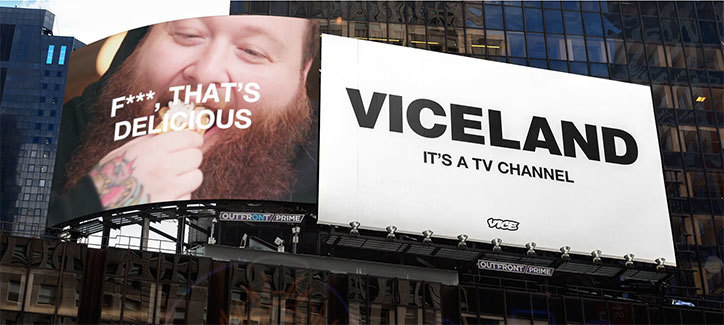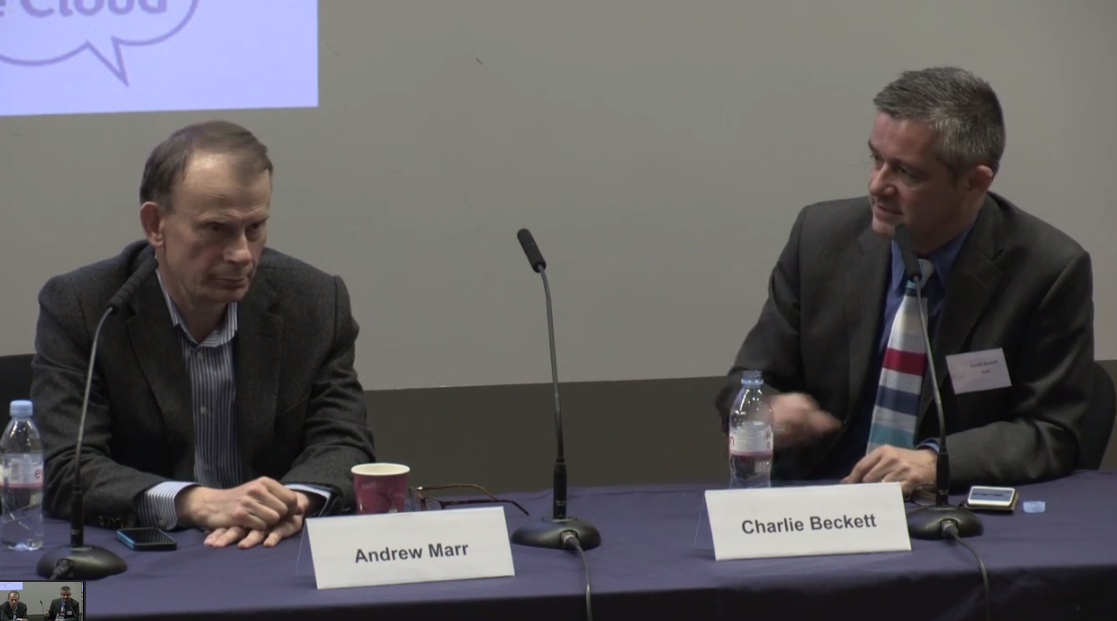In the wake of this shock result should journalists now abandon their previously-held beliefs about covering elections? Or is there a danger that we’re replacing one set of shibboleths with fresh myths?
Most political reporters and commentators (and most media academics, including me) called most of this wrong*. Some like veteran political commentator John Rentoul are coming out early and reflecting on their mistaken opinions. That’s great.
There are a set of assumptions about electoral politics that have been overturned. One of the most important, that I’ve long cherished, is that the campaign period itself doesn’t change things much. Labour’s ten point rise from it’s start in the opinion polls to the actual result suggests that in our current unstable climate that is now false.
But before we rush to create another paradigm let’s have a look at some of the apparent changes in political media and communication and ask what’s really new in 2017.
It will take some time to judge empirically if there has been a genuine shift. Take youth voting. In the wake of the result people were recycling a figure of 70% 18-25 year-old turn-out. Anecdotal evidence plus the success of Labour in seats with a larger number of younger voters suggest this may be true, but as BBC research shows, that’s by no means proven – yet. [Update: a post-election survey by YouGov did indeed show that the ‘Youthquake’ idea was a myth – yes, there was a generational divide but there was no surge in first-time voters]
For me, here are some of the key campaign media issues that need looking at – let me know what you think and tell me if there are others that need addressing:
- Why did so many political journalists (and politicians, activists and academics) fail to predict the result or understand what was happening? Did we fail to learn the lesson of Brexit? Are we still in thrall to inadequate indicators such as opinion polls? Has the Westminster ‘mainstream elite’ failed to get out of its London/Twitter bubble? Do we spend too much time covering the official campaign instead of looking at issues and grass roots reality and sentiment? For example, too many ‘vox pops’ feel like illustrations for the journalist’s pre-existing narrative rather than genuine listening. Focus group polling by companies such as Britain Thinks were much more revelatory. Fox hunting, for example, barely covered as a campaign issue, appears to have been a key factor in shifting voter perceptions.

- The power of the newspapers. Left-wing commentators especially have long been convinced of the ability of Murdoch, Dacre etc to brainwash voters. The polling day onslaught by the right-wing press was seen as a powerful intervention. Yet, newspaper sales are declining and their readership is ageing. Perhaps election-weary, media-cynical readers are more resistant to the kind of patronising and hysterical fear-mongering? Is it possible that it even backfires as social media provides a forum for people to mock the propaganda? It seems that in general, because of the acceleration of the news cycle and the increasing number of sources, mainstream media brands are losing power over the agenda and their gatekeeping role for information and trends.
- Quite rightly there are concerns about the millions spent by (both) parties on online campaigning. The suggestion is that unregulated micro-targeting of undecided voters is secretly swinging the election in the privacy of people’s Facebook feeds. I’m a little more sanguine about this. What is so different about this from traditional direct mail or door-knocking? The evidence from this election is that it has not had much effect. If anything Labour was more successful with its online promotion of more positive messages to motivate its likely supporters rather than the Tory attack ads.
- Fake News. I am convinced that false news, often masquerading as mainstream journalism, is a symptom of a wider problem around the credibility of information.The indications are that unlike the US, the UK is less susceptible to the click-bait genuinely untrue news. But just as much a problem as the obvious hoaxes and lies is the hyper-partisan content which is now churned out by both left and right-wing activists such as the Canary or Breitbart.
- Twitter is now an invaluable tool for giving voice to everyone, providing feedback on mainstream media and politicians, correcting misinformation and alerting us to breaking news. But it’s brevity and its binary bias towards promoting more aggressive, antagonistic content might be turning the opportunity for deliberation and interaction into a slanging match that fosters fragmentation and promotes echo chambers. Is this simply a reflection of the reality of our more diverse and angry politics or is it making things worse?

- The political parties both turned this election campaign into something of a stage-managed sham. I’ve argued that this was a ‘fake election’. Certainly, Theresa May and the Conservatives ran away from open interaction with the public or news media. Their sterile sloganeering sought to build a majority for her Brexit negotiations. But they weren’t prepared to debate anything else and not even that key central issue. Corbyn’s Labour’s strategy was to pile up votes in their heartlands to secure his leadership and the left-wards shift in the party, not to win over more centrist voters to win seats that might put the party in power. Well that worked rather better than anyone thought for Labour but they still lost. In the end Corbyn at least did appear on TV ‘debates’ but many journalists were left furious that they were never given the chance in set-piece interviews or press conferences to properly grill the politicians on policy. How can we make sure that there is a proper interaction next time? Do we have to come up with better formats that allow politicians to engage in debate without turning it into ‘gotcha’ ambushes?
- Expertise and ‘diversity’. We have some new platforms for political journalism such as BuzzFeed who did some innovative and intelligent work, but generally are our political journalists too similar, all drawn from a similar PPE metropolitan elite background? Experts, such as pollsters and political academics are increasingly drawn into coverage, especially online, but is that just creating a cleverer bubble? Are we too obsessed by the horse-race of the opinion polls and ignoring policy and social trends? There’s lots of partisan argument but is there any truly critical independent insight? As the Twitter exchange below shows, journalists are having doubts about their ability to pontificate, but there is a big media demand for ‘opinionating’ and little time to seek evidence beyond polling and other pundits’ opinions:
There are plenty of other issues to tackle: did we get the balance between horse-race and policy analysis right? Was the BBC critical enough of the main parties’ agenda? Why did some issues such as climate change, poverty, and foreign policy fail to get an airing? The feedback I’ve been getting to this article has mainly been from Corbyn supporters (as they call themselves, not ‘Labour voters’) and their anger is directed at mainstream media as a whole, not just the right-wing press.
There was a lots of excellent journalism during this campaign and a vibrant range of commentary on social media. But it seems to me that while the news media is adapting well to new technologies, it is not coping with a fundamental structural shift in politics, ideology and political communications. We are still clinging to the old model of the Fourth Estate with journalists as just another part of the establishment system. Mainstream politics is straining to cope with the realities of public opinion and the limitations of its power. Likewise, the news media has not thought through its real role and relevance to politics.
We are about to enter a vital historic phase of great complexity and significance. Can we create the journalism to help us understand and address this critical moment?
I personally think that key to this is even more networked journalism. Not just getting out of the newsroom more but also using online tools and platforms such as the much-maligned Facebook to seek out and interact in a more humble, listening mode to a greater range of what real people are saying. We must re-double efforts on the traditional journalism functions of fact-checking, investigation and revelation but add to that greater empathy and even emotion. Too much of the coverage of the 2017 election was journalists saying what they think rather than reporting what voters felt.
*One organisation that called it right was pollsters YouGov. Here’s their methodology.
This article by Charlie Beckett, professor in the LSE Media and Communications Department and director of Polis, the LSE’s journalism think-tank.
You can send feedback via twitter @CharlieBeckett or by email to: c.h.beckett@lse.ac.uk
Updates/feedback:
How about not leading or even not reporting on opinion polls?
Why do broadcast newspapers reviews only cover the mainstream brands?










Due to an injury I’ve been basically bedridden for the past yr. I chose to study and learn everything possible about politics and the 2016 election. I put a min of 40hrs a wk into my research. I believe the Russian involvement w/fake news along w/the Trump campaigns help is the ONLY reason why Trump won. In Britain I think the devastation of the Trump win scared enough people to not vote conservative.
Charlie, on point 6 re the challenges of of journalists being able to properly interview politicians, journalists need to take responsibility for this. Paxman and John Humphrys’s style of “interviewing” is incredibly harmful for public debate and understandably deters politicians from engaging or, where they do, producing little more than soundbites. We need interviewers who will listen, yet still challenging in a constructive manner that exposes lies, inaccuracies, or poorly thought-through policies, or enhances understanding.
There’s a similar point about “u-turns”. We need to be more tolerant of politicians of any party putting out proposals that might not be as sound as they thought. If it turns out the public is wildly against them and/or evidence comes to light of more costs than benefits, it should be accepted – indeed, encouraged – that politicians may want to revise their positions. In some cases, the criticism is warranted, but in many cases it’s not.
A more fundamental issue to address is bias in what you describe as mainstream journalism. You attempt to distinguish mainstream journalism as being more reliable than fake news when it really isn’t. All we have seen throughout the last decade is bias – even to the point where organisations which have been previously chastised for a story then go on to repeat that story e.g. BBC and ‘Shoot to kill’.
Bias is the big problem. MSM is finished because you can’t trust it.
“Corbyn’s Labour’s strategy was to pile up votes in their heartlands to secure his leadership and the left-wards shift in the party, not to win over more centrist voters to win seats that might put the party in power.”
Do you know this is what happened? Is there polling to show that only extreme leftists and ‘core’ Labour voters voted for Corbyn’s party? Is it not possible your understanding of where the ‘centre ground’ sits is flawed? I haven’t seen any detailed data, but it certainly looked as if lots of people switched to Labour from other parties, according to the swings reported on the night, including the supposedly centrist Lib Dems. I consider myself a centrist, and I had no problem with the Labour manifesto. Did you?
Even if we grant your premise, after 40 years of politicians and media shifting the ‘centre ground’ ever rightward (Thatcher would never have dared to do half the things Cameron and May wanted to do) what’s wrong with using an election to push the national conversation the other way? It seems like a solid long-term strategy to me.
Otherwise, good piece. Thank you.